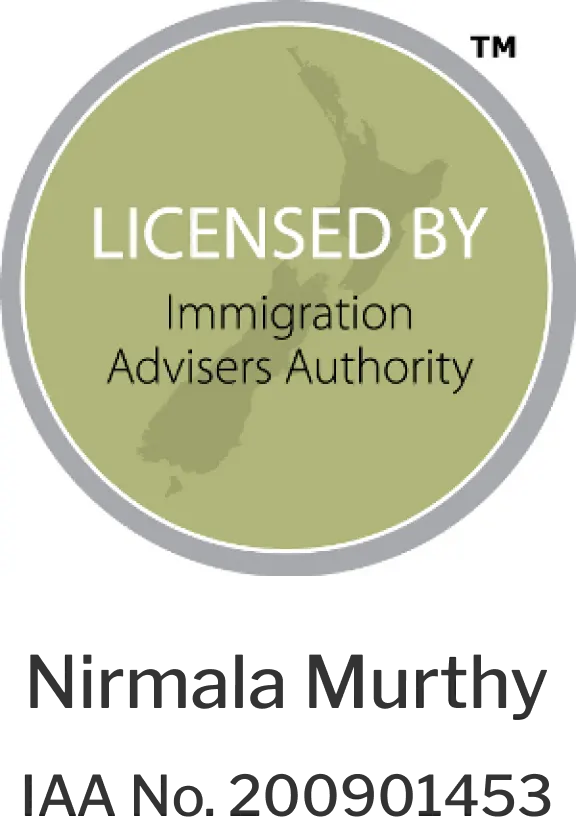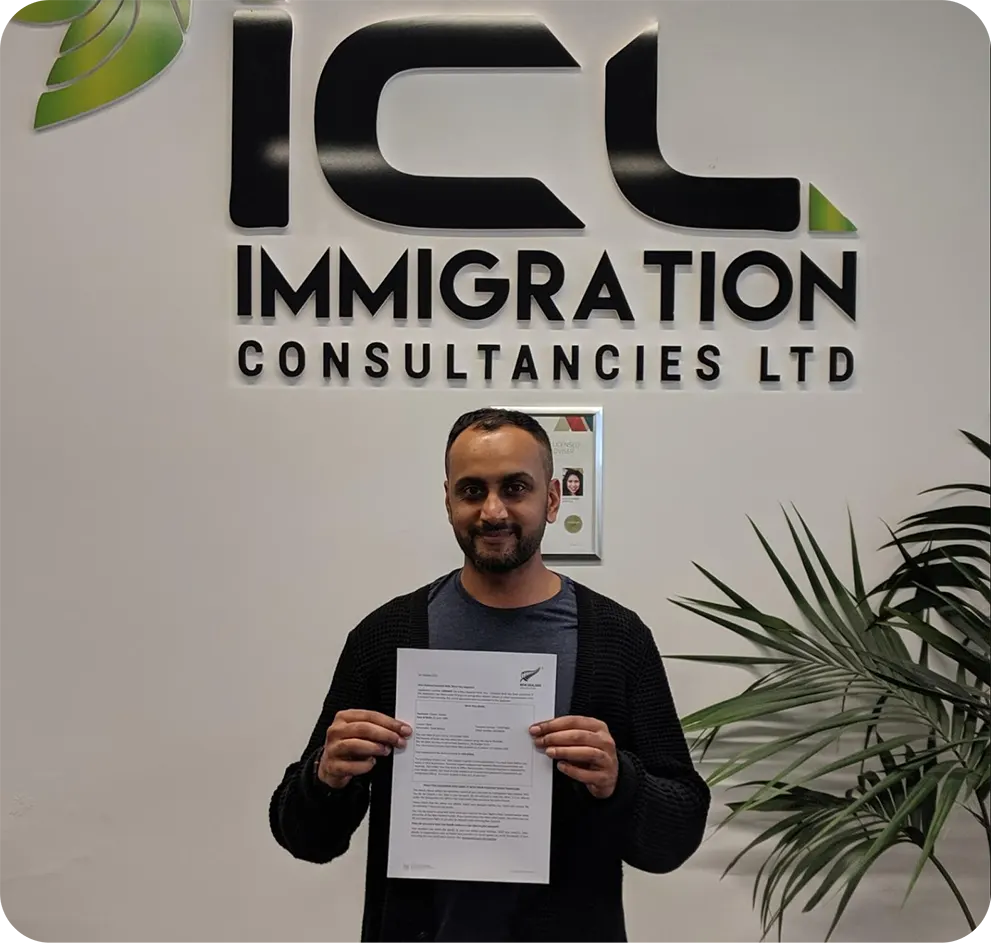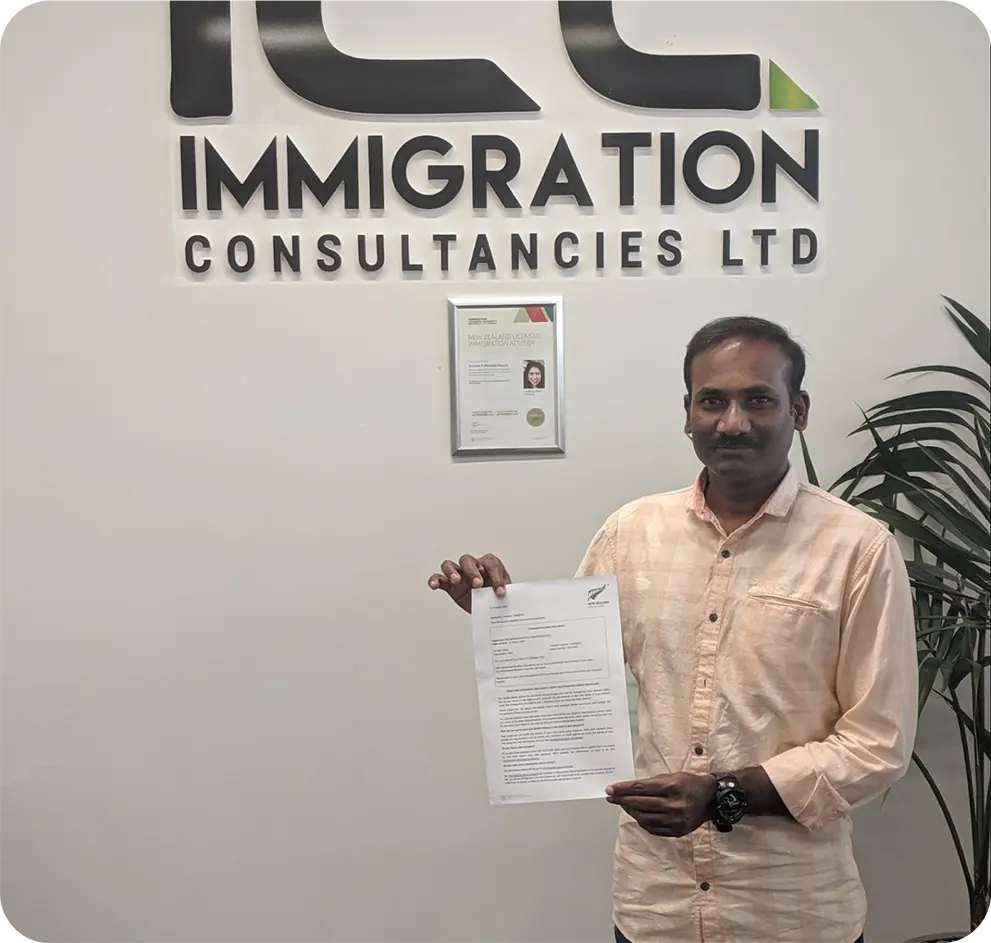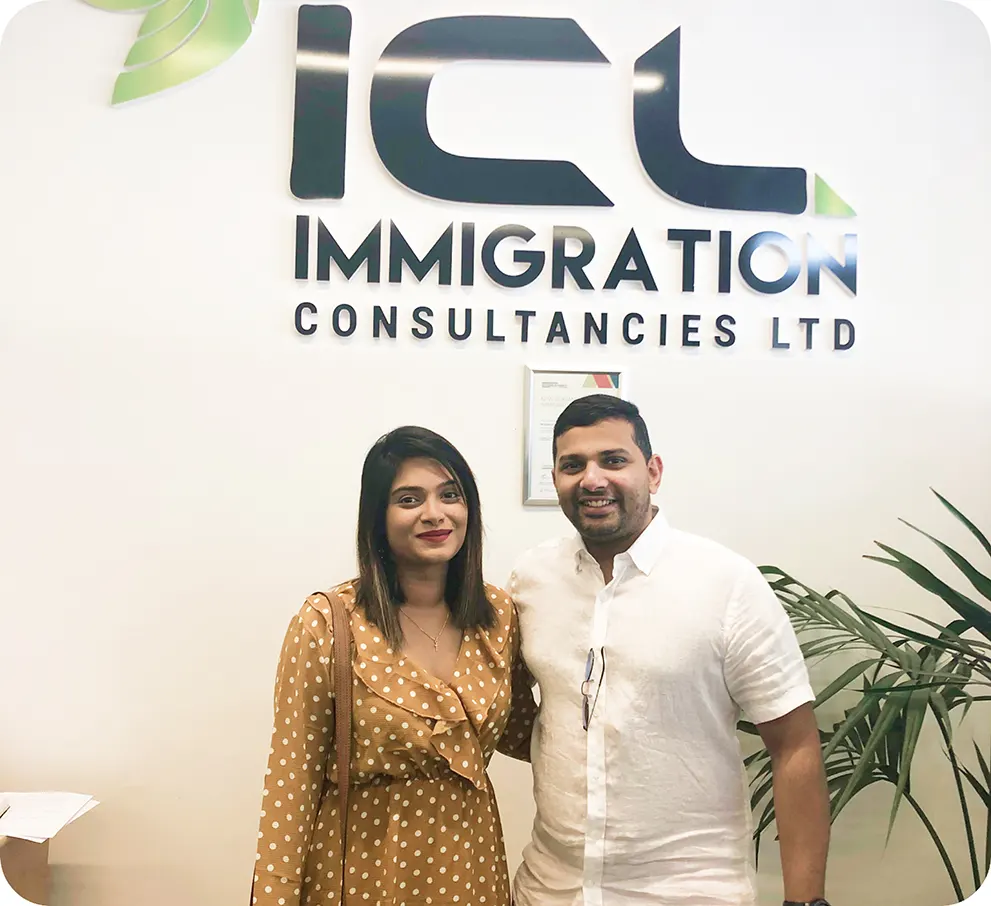What is a New Zealand Resident Visa?
A New Zealand Residence Visa is a way to live in New Zealand permanently. Every year, more than 70,000 people from all over the world apply for these visas because they’re excited about New Zealand’s strong economy and lots of job opportunities.
Who Can Get It?
These visas are mainly for skilled workers, entrepreneurs, and people with family ties in New Zealand. They want to make New Zealand’s economy and community better.
Renewal and Travel
Some of these visas have conditions and may need to be renewed every two years. But if you meet all the rules, you can eventually get a Permanent Resident Visa, which you don’t have to renew. Also, this visa lets you travel in and out of New Zealand many times, so you can go abroad and come back without a new visa.
Visa Charges (NZ Immigration)
The cost depends on the type of visa you apply for. For example, the Skilled Migrant Category Resident Visa starts at NZD 4290, while the Parent Resident Visa starts at NZD 3180.
Are There Any Limits?
Yes, there’s a limit on how many visas are available each year. For instance, the Parent Resident Visa has a limit of 2500 visas every year.
Benefits of New Zealand Resident Visa
- Healthcare and Education: With this visa, you can use New Zealand’s public healthcare system and go to schools and universities at the same cost as local students.
- Let Your Family Join You: You can also help your family members become residents in New Zealand, so you can all stay together.
- Road to Citizenship: If you hold a Resident Visa for some time, you can apply to become a New Zealand citizen.
Note: The cost and availability of New Zealand visas can change because of decisions made by the New Zealand Immigration authorities.
Watch Visa
Video Guide
Take the first step towards your New Zealand dreams
Types of Resident Visas in New Zealand
New Zealand has special visas for different kinds of people like families, workers, and business owners. These visas make it easy for anyone to live in New Zealand, no matter where they’re from. Let’s check out some popular visa types:
Skilled Migrant Category Resident Visa
- Who Can Get It: If you have good skills, work experience, and a job offer in New Zealand.
- Benefits: You can live, work, and study in New Zealand for as long as you want. If you stay for a while, you might even become a citizen.
Investor Resident Visas
- Categories: There's Investor 1 and Investor 2.
- Eligibility: You need to invest a significant amount of money in New Zealand for a certain time.
- Duration: This visa can last up to 3 years, and you might renew it if the religious group agrees.
- Benefits: If you help the economy by investing, you can live, work, study, and even become a citizen later.
Long-Term Skill Shortage List Resident Visa
- Who Can Get It: People who have worked in a job listed on the Long Term Skill Shortage List in New Zealand.
- Benefits: It's a simple way for important workers to become residents, which makes New Zealand even stronger.
Family Category Resident Visas
-
Types:
- Partner of a New Zealander Resident Visa: For people in a relationship with a New Zealand citizen or resident.
- Parent Retirement Resident Visa: For parents of New Zealanders who want to live in New Zealand and invest some money.
- Benefits: These visas let families stay together in New Zealand, which makes everyone happy.
Entrepreneur Resident Visa
- Who Can Get It: For people who own businesses in New Zealand.
- Benefits: Business owners can stay in New Zealand forever and make their businesses bigger, which helps the economy and creates more jobs.
Special Resident Visas
- Permanent Resident Visa: For people who already have a Resident Visa and meet specific rules.
- Interim Visa: Gives temporary status while waiting for a Resident Visa decision.
- Specific Purpose or Event Visas: For people with special skills or talents that help New Zealand.
Ready to Begin Your Kiwi Journey?
20+
Years of Expertise
300+
Google Reviews
Flat Fee
& Transparent Pricing
What is the Resident Visa Application process?
Getting a New Zealand Resident Visa is quite simple, but it’s crucial to do each step right for a smooth process. ICL is here to help you through it all!
1. Gather Your Documents
Start by gathering all the documents needed for your Work Visa. This usually includes your job qualifications, a job offer from a New Zealand employer, and any other papers to back up your application. Our expert team will help you gather everything and fill out the forms.
2. Send Your Application
Once you’ve gathered all the needed documents and filled out the forms, it’s time to send your application for review. We’ll assist you in meeting all criteria and submitting it to Immigration New Zealand (INZ) to boost your chances of success.
3. Wait for Your Response
After sending your application, you’ll have to wait for INZ to make a decision. This process might take a few weeks or even months. Our team will keep you informed and advise you on what to do if more documents are needed.
4. Receive Your Work Visa
INZ will either approve your Work Visa or deny entry to New Zealand. If it’s approved, we’ll guide you through the next steps and ensure you have all the details to start your new job in New Zealand.
20+
years of experience
1000+
satisfied clients
300+
google reviews
Flat Fee
assurance
Choose ICL for Your Resident Visa
Getting a Resident Visa can feel tricky, especially if it’s your first time. Getting it right from the get-go is super important, and having a pro by your side can really boost your chances of success.
At ICL, we get that getting a Work Visa for New Zealand can stress you out. What happens with your visa can shape your life and your family’s future. We believe that having an expert to guide you can be the difference between starting a new exciting chapter and feeling all tense and worried.
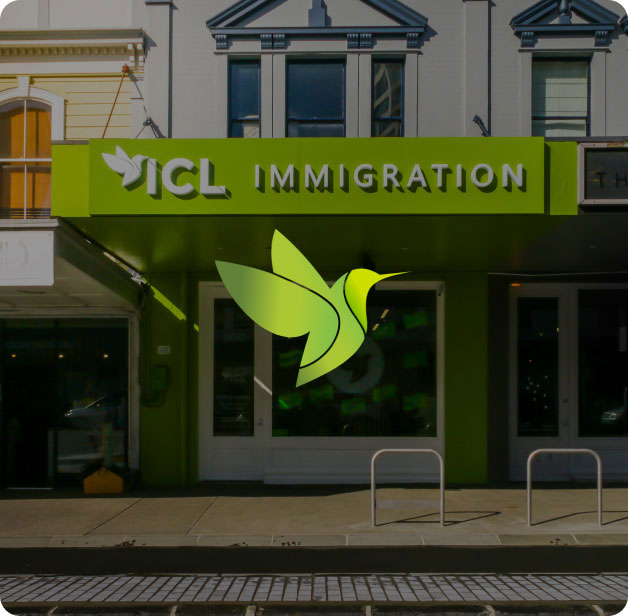
Proven Expertise
Our experts, who are immigrants themselves, have more than 20 years of experience helping clients get Work Visas.
Transparent Pricing
We're all about fair pricing, which is why we give you a clear quote right at the beginning. You can trust us—no sneaky fees or surprise bills.
Complete Assistance
We take care of everything from the start to the very end, so you can have your peace of mind. Pick ICL for a smooth and hassle-free Work Visa application journey.
Client Testimonials



Success Stories
Let’s Start Your Success Story
Simply fill up a quick form, which will help us contact you and schedule your first consultation, free of charge.
FAQs
A Resident Visa in New Zealand permits indefinite living, working, and studying in the country. It offers most rights of a New Zealand citizen, excluding voting rights and holding a New Zealand passport.
New Zealand offers several types of Resident Visas:
Work to Resident Visa: For individuals with specific skills or job offers.
Care Workforce Work to Residence Visa: For healthcare workers with relevant qualifications.
Skilled Migrant Category Resident Visa: Points-based visa for skilled workers (minimum points threshold subject to change).
Straight to Residence Visa: For highly skilled or talented individuals in specific sectors.
Highly Paid Residence Visa: For individuals earning significantly above the median wage (exact threshold available on Immigration New Zealand's website).
Partnership Residence Visa: For partners of New Zealand citizens or residents, requiring proof of a genuine and stable relationship.
Typically requires employment in a role listed on the Long-Term Skill Shortage List, or a job offer from an accredited employer in New Zealand.
Care workers in New Zealand, needing specific qualifications (as outlined by New Zealand's standards) and relevant work experience in healthcare.
Applicants are assessed based on age, work experience, qualifications, and a job offer in New Zealand. The current pass mark is dynamic and can be checked on Immigration New Zealand's website or connect with us for more information.
Aimed at highly skilled professionals or individuals with exceptional talent in specific areas, requiring evidence of significant contributions or expertise.
For professionals earning above a certain income threshold, typically set above the median wage in New Zealand (exact figures subject to change).
Partners of New Zealand citizens or residents, requiring proof of a genuine and stable relationship for at least 12 months.
Applications involve submitting forms and supporting documents online through Immigration New Zealand. Each visa category has specific document requirements.
Most visas allow the inclusion of partners and dependent children under 24 years, subject to meeting health and character requirements.
English proficiency is typically required. The level of proficiency and type of test accepted varies by visa type.
Resident Visas have initial travel conditions typically valid for 2 years. Permanent Resident Visas offer indefinite stay without travel restrictions.
Processing times vary by visa type, ranging from several months to over a year. Check the Immigration New Zealand website for current processing times or connect with us for more information.
Generally, no specific work location restrictions unless specified by the visa, such as those under the Skilled Migrant Category.
Applicants can address the reasons provided by Immigration New Zealand in a new application or explore alternative visa options.
ICL Immigration assists with eligibility assessment, application preparation, document advice, and ongoing support throughout the process.
A class visa in New Zealand refers to a specific category under which resident visas are issued. It defines the terms and conditions, including duration, work rights, and travel limitations. Understanding the class of your resident visa is crucial for compliance with New Zealand immigration laws.
Individuals who have invested significantly in New Zealand can apply for a resident visa under the Investor categories. These visas are for those who intend to invest a substantial amount of money in New Zealand businesses or government bonds.
Temporary entry class visas, such as visitor or student visas, have specific conditions like duration of stay, work rights, and study limitations. These must be adhered to strictly to maintain legal status in New Zealand.
Care workers in New Zealand who meet specific eligibility criteria can apply for a Work to Residence visa, allowing them to live and work in the country with the pathway to residency. Find out more about the requirements and application process on our care workforce work to residence visa page.
Business owners can apply for a resident visa under the Entrepreneur category, which requires them to set up or purchase a business in New Zealand and actively participate in its management.
To apply for a permanent resident visa, individuals must have held a resident visa for at least two years, demonstrate a commitment to New Zealand, and meet other criteria like spending a minimum number of days in the country (184 days in each of the last two years).
Yes, resident visa holders can sponsor eligible family members, such as partners and dependent children, for residence under the family sponsorship category, subject to meeting specific eligibility criteria.
Once you meet the conditions of your resident visa, such as the initial two-year travel condition, you may be eligible to apply for a permanent resident visa, allowing unrestricted travel to and from New Zealand.
A commitment to New Zealand is assessed by factors like the time spent in New Zealand during the resident visa period, establishing a home, or contributing to the community or local economy.
A temporary visa, such as a work or student visa, can serve as a pathway to residence by allowing individuals to gain the necessary experience, qualifications, or relationships in New Zealand. This experience can then be leveraged to meet the criteria for various residence class visas.
Residence class visas in New Zealand include the Skilled Migrant Category, Family Category (including Partnership Visa), Investor and Entrepreneur Visas, and other specific categories like the Long-Term Skill Shortage List Visa. Each category has unique eligibility requirements and conditions.
Yes, it is common to start with a temporary visa, such as a work or student visa, before applying for a resident visa. This approach allows individuals to establish themselves in New Zealand and meet specific requirements that make them eligible for resident status.
Transitioning from a temporary visa to a residence class visa provides several benefits, including increased stability, longer duration of stay, the possibility of family inclusion, and a pathway to permanent residency and citizenship.
ICL Immigration assists clients in transitioning from a temporary visa to a residence visa by assessing their eligibility, advising on the best pathway based on their circumstances, assisting with document preparation, and guiding them through the application process.
Yes, holders of temporary visas who are applying for a residence visa can often include their family members in their application. This includes partners and dependent children, subject to meeting the relevant criteria and providing the necessary documentation.
Key considerations include ensuring continuous legal status, meeting specific criteria for the residence visa category, preparing and submitting the necessary documentation, and understanding the timeframes and processes involved.
The duration for holding a temporary visa before applying for a residence visa varies depending on the visa category. For example, work visa holders may need to work in New Zealand for a specific period to qualify for certain residence visas.
Temporary visas generally have more restrictions and a shorter duration of stay compared to residence class visas. Residence visas offer more rights, such as the ability to work for any employer and access to certain public services and benefits.
Business owners on a temporary visa can plan for residence by meeting the criteria under the Entrepreneur or Investor residence categories. This includes successfully establishing or investing in a business in New Zealand and contributing to its economy.
Disclaimer: The information provided is subject to change based on New Zealand government policies. For the most current information, please refer to Immigration New Zealand or contact ICL Immigration for updated guidance.


